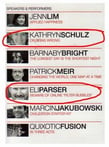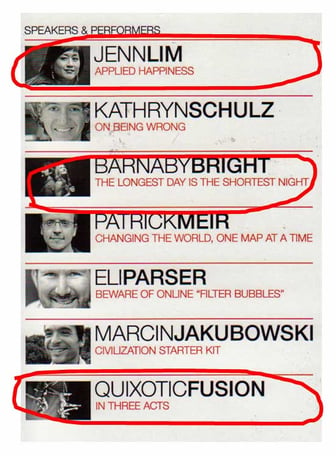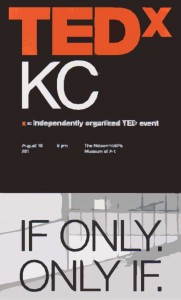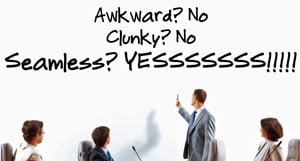 The two TED talk video presentations by Kathryn Schulz and Eli Parser during the 2011 TEDxKC event were related in treating transparency in thinking and how we receive and process information. They're both featured today. Attempting to link the Kansas City presenters back to the "If only. Only if." theme for 2011 TEDxKC, each recaps begins with my perspective on how the theme could be completed for that presenter's talk.
The two TED talk video presentations by Kathryn Schulz and Eli Parser during the 2011 TEDxKC event were related in treating transparency in thinking and how we receive and process information. They're both featured today. Attempting to link the Kansas City presenters back to the "If only. Only if." theme for 2011 TEDxKC, each recaps begins with my perspective on how the theme could be completed for that presenter's talk.
Kathryn Schulz - "On Being Wrong"
If only you would understand the danger in believing you're on the correct side of anything.
Only if you come to realize the most right you are is when suspecting you're going to be wrong.
Kathryn Schulz's 2011 TEDxKC talk was a video from TED 2011 all about being wrong. Schulz - a "wrongologist" - has spent five years thinking about why we misunderstand things and the insights uncovered about human nature.
Something quite evident that seemed new in the way Schulz discussed is absent a point of comparison, being wrong and being right feel the same. Her claim is we don't tend to have internal cues about "wrongness," but more on that later. Since people perceive themselves as correct, they have to rationalize those who disagree. Schulz offered three assumptions individuals us to deal with those who disagree:
- The Ignorance Assumption - The person disagreeing is ignorant, and you just need to educate them.
- The Idiot Assumption - The person disagreeing is an idiot and beyond education.
- The Evil Assumption - The person disagreeing with you knows you're right and is simply distorting the truth for his or her own gain.
Karen Schulz's point is we continually expect one thing to happen and then something different happens - with both big and small events. We generate stories about how the world is going to play out and then the world astonishes us by doing something different.
This was a topic near and dear to me, and even more so after Schulz referenced a quote from St. Augustine's "City of God" which translated to "I err, therefore I am." For me, that good Catholic sense of suspecting (okaying "knowing") you're wrong has shaped my life, attitudes and willingness to hear others out on their (even extreme) points of view. Because, to paraphrase Dennis Miller, "I'm probably wrong."
Eli Parser - "Beware of Online Filter Bubbles"
If only algorithms realized humans don't follow perfectly executed behaviors.
Only if people stand up and demand to know how their online information is being curated.
Eli Parser, author of "The Filter Bubble," in a 2011 TED video talk discussed the negative implications of the web's growing propensity to create personalized views of results. While Parser never mentioned EdgeRank by name, he did share Mark Zuckerberg's perspective that, "A squirrel dying in your front yard may be more relevant to your interests right now than people dying in Africa."
Algorithms examine your social graph to deliver content, recommendations, visuals, user experiences, schedules, etc. tailored to you. According to Eli Parser, Google employs 57 cues even when you're not logged in to personalize your experience. Parser describes this artificial view of information as "filter bubbles," and hints we may be surrounded by "information junk food" based on what and where we've clicked online in the past. He points out it's not confined to Facebook and Google; the same phenomenon applies in varying degrees for other online content providers too.
The internet story of readily available, unfiltered information may be (I think "is") wrong hypothesizes Parser. Rather than the Internet eliminating information gatekeepers, human gatekeepers have simply been replaced by algorithmic ones. Because of this, Parser advocates for programming civic responsibility and a sense of the public life into the algorithms so we continue to receive uncomfortable and challenging information, just as we would in looking at general offline communications.
And, based on Kathryn Schulz's talk, we better program a lot of inaccuracy into the online algorithms as well!
If you’d like to add an interactive, educationally-stimulating presentation on strategy, innovation, branding, social media or a variety of other topics to your event, Mike Brown is the answer. Email us at brainzooming@gmail.com or call 816-509-5320 to learn how Mike can get your audience members Brainzooming!



